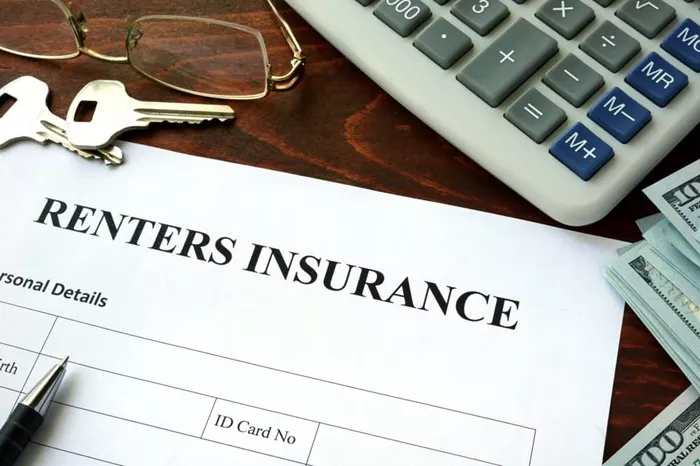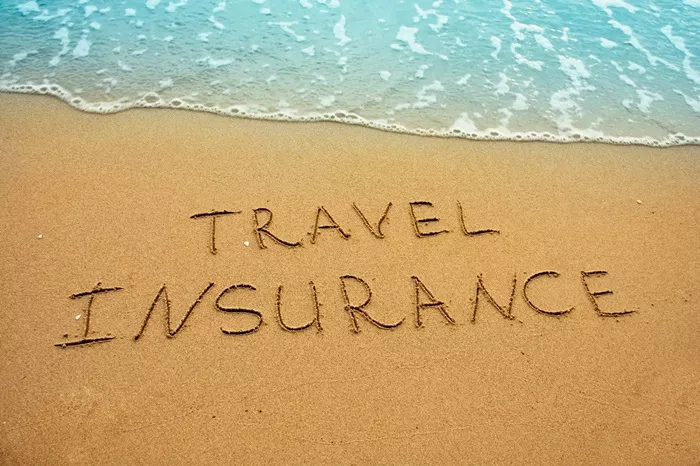Self-insured health insurance is a model wherein an employer uses its own funds to cover employees’ health claims, rather than purchasing a traditional policy from an insurance provider. In this arrangement, the employer acts as the insurer, assuming direct financial responsibility for the costs associated with employee health care. This approach contrasts sharply with fully-insured plans, where employers pay a fixed premium to an insurance carrier that then assumes the risk and responsibility for paying claims.
Financial Responsibility
Under self-insured plans, employers bear the financial risk for providing health care benefits. This can potentially lead to significant savings, as employers avoid the profit margins and risk charges included in premiums for fully-insured plans. By paying for actual claims rather than fixed premiums, employers can retain funds that would otherwise contribute to an insurer’s profit.
This financial structure offers more control over the plan design, allowing employers to tailor benefits to the specific needs of their workforce. For example, an employer can decide to cover certain treatments or wellness programs that are particularly relevant to their employees. However, this model also exposes employers to potentially high costs if claims are higher than expected. Effective risk management strategies, including the use of stop-loss insurance, are essential to mitigate these risks.
Plan Administration
Administering a self-insured plan requires substantial expertise and resources. Employers often engage third-party administrators (TPAs) to manage the daily operations of the health plan. TPAs handle tasks such as claims processing, customer service, and maintaining health care provider networks. Although the employer retains ultimate financial responsibility, the TPA ensures that the plan runs smoothly and efficiently.
In many cases, TPAs use a commercial insurance carrier’s network to provide employees with access to a broad range of health care providers. This hybrid approach allows self-insured plans to benefit from the negotiated rates and established networks of large insurers while maintaining the flexibility and cost advantages of self-insurance.
Regulatory Differences
Self-insured health plans are regulated under the federal Employee Retirement Income Security Act (ERISA) of 1974. ERISA sets minimum standards for most voluntarily established retirement and health plans in private industry, providing protection for individuals in these plans. One significant aspect of ERISA is that it preempts state insurance laws, which means self-insured plans are not subject to the varying regulations and mandates imposed by individual states.
This regulatory framework provides a consistent set of rules for employers operating in multiple states, reducing the complexity and administrative burden associated with state-specific insurance laws. However, it also means that self-insured plans are subject to federal oversight and compliance requirements, which can be complex and demanding.
Stop-Loss Coverage
Stop-loss insurance is a critical component of self-insured health plans. It protects employers from catastrophic claims that could otherwise have a devastating financial impact. Stop-loss coverage comes in two forms: specific (or individual) stop-loss, which covers claims above a certain amount for any one individual, and aggregate stop-loss, which provides protection when total claims for the entire group exceed a predetermined threshold.
For example, an employer might purchase specific stop-loss insurance that covers any individual claims exceeding $50,000. If an employee incurs $100,000 in medical expenses, the stop-loss insurer would reimburse the employer for $50,000 of that cost. Aggregate stop-loss insurance, on the other hand, ensures that the total claims do not exceed a certain percentage of expected claims, providing an additional layer of financial security.
Benefits for Employers and Employees
The advantages of self-insured plans extend to both employers and employees. Employers benefit from the potential for significant cost savings, improved cash flow, and greater flexibility in designing health benefits. They can implement wellness programs and other initiatives tailored to their workforce, potentially leading to healthier employees and reduced health care costs over time.
For employees, self-insured plans can offer enhanced benefits compared to fully-insured plans. Since employers have the flexibility to design the plan, they may include more comprehensive coverage, lower out-of-pocket costs, or additional wellness programs. Additionally, the direct relationship between employer and plan administration can lead to quicker resolution of claims and better overall service.
Risks and Considerations
Despite the numerous advantages, self-insured plans carry inherent risks. The most significant is the financial exposure to large claims. Employers must have the financial stability and cash flow to cover unexpected spikes in health care costs. This exposure necessitates robust financial planning and risk management strategies.
Effective risk management includes maintaining sufficient reserves to cover potential claims, purchasing stop-loss insurance, and regularly reviewing and adjusting the plan design to manage costs. Employers must also stay informed about changes in health care regulations and market trends to ensure their plans remain compliant and competitive.
Market Trends
Self-insured plans are particularly prevalent among larger employers. According to recent statistics from the Kaiser Family Foundation, approximately 82% of covered workers in large firms (those with 200 or more employees) are enrolled in self-insured plans. This prevalence is driven by the potential cost savings and the ability to customize plans to better meet the needs of employees.
In contrast, only about 26% of covered workers in small firms are in self-insured plans, primarily due to the higher financial risks and administrative complexities involved. However, advancements in TPAs and stop-loss insurance are making self-insurance more accessible to smaller employers, leading to a gradual increase in adoption among this group.
Consumer Protections
Federal protections, such as the No Surprises Act, apply to both self-insured and fully-insured health plans, safeguarding consumers from unexpected medical bills. The No Surprises Act, effective from January 1, 2022, protects patients from surprise billing in emergency situations and certain non-emergency services. This act ensures that patients are not held financially responsible for amounts beyond in-network cost-sharing for emergency services and certain non-emergency services provided by out-of-network providers at in-network facilities.
These protections are crucial for maintaining trust in employer-sponsored health plans, ensuring that employees are not left with significant financial burdens due to surprise medical bills.
Case Studies
Many businesses have successfully implemented self-insured health plans, realizing significant benefits as a result. For instance, a mid-sized manufacturing company in the Midwest transitioned to a self-insured plan to gain more control over their health care costs. By partnering with a TPA and implementing wellness programs tailored to their workforce, they were able to reduce their health care expenditures by 15% within the first two years. Additionally, the customized plan design improved employee satisfaction and retention, as the benefits better aligned with their needs.
Another example involves a large technology firm that moved to a self-insured model to better manage the health care needs of their diverse and growing workforce. By offering a variety of plan options and focusing on preventive care, the company not only reduced their overall health care costs but also saw a marked improvement in employee health and productivity. Their proactive approach to health management, supported by robust data analytics and a strong partnership with their TPA, allowed them to continually optimize their plan and respond effectively to emerging health trends.
Conclusion
Self-insured health insurance represents a compelling option for employers seeking to control health care costs and provide tailored benefits to their employees. By assuming the financial risk and leveraging the expertise of TPAs, employers can achieve significant cost savings, greater flexibility in plan design, and improved employee satisfaction. However, the financial exposure to large claims and the need for effective risk management strategies cannot be overlooked.
The regulatory framework under ERISA provides a consistent set of rules, and the inclusion of stop-loss insurance mitigates the risks associated with high claims. As more employers recognize the potential benefits, particularly among larger companies, the prevalence of self-insured plans continues to grow. With the right strategies in place, self-insured health plans can be a sustainable and advantageous model for both employers and employees in the ever-evolving landscape of health care.
FAQs About Self-Insurance
1. What does it mean when a plan is self-insured?
When a plan is self-insured, it means that the employer assumes the financial risk for providing health care benefits to its employees. Instead of purchasing a traditional insurance policy from an external insurer, the employer sets aside funds to cover the cost of employees’ health care claims directly. Self-insured plans offer employers more control over plan design and potentially significant cost savings.
2. What does it mean to insure yourself?
To insure yourself means to take on the responsibility of covering potential financial losses or liabilities through an insurance policy. This can include purchasing insurance coverage for various aspects of your life, such as health, property, or liability insurance. Insuring yourself provides protection against unexpected expenses or damages and helps manage risk.
3. What are the disadvantages of self-insurance?
While self-insurance offers advantages such as cost savings and flexibility, it also comes with potential disadvantages. One significant drawback is the financial risk exposure to large claims. If employees incur unexpectedly high medical expenses, the employer must have sufficient funds to cover those costs. Additionally, self-insured plans require careful management and administration, which can be complex and resource-intensive. Employers may also face challenges in negotiating favorable rates with health care providers without the leverage of a large insurance carrier.
4. What is it called when you self-insure?
When you self-insure, it means that you are assuming the financial risk for potential losses or liabilities without purchasing a traditional insurance policy. Instead of paying premiums to an external insurer, you set aside funds to cover any claims or expenses that may arise. Self-insurance is often chosen by individuals or organizations seeking more control over their insurance arrangements and potentially lower costs in the long run.
You Might Be Interested In






















